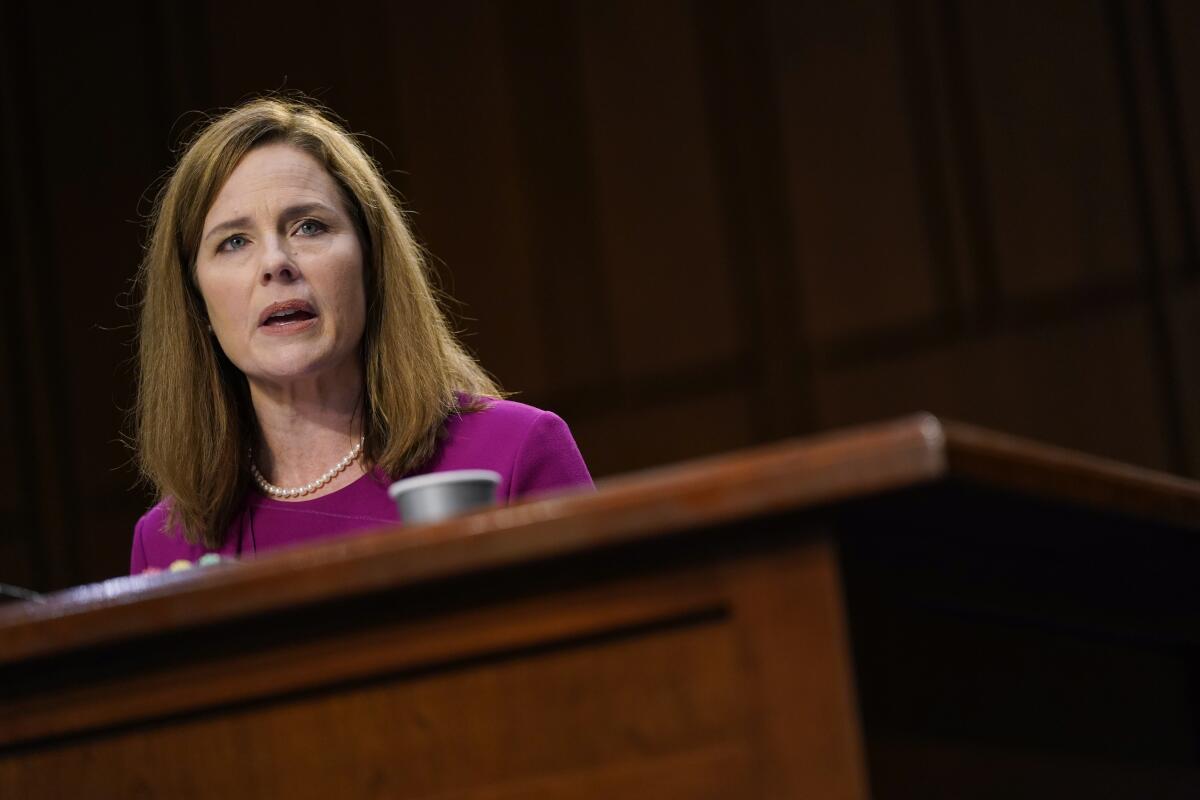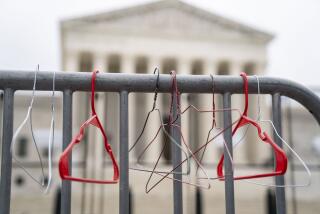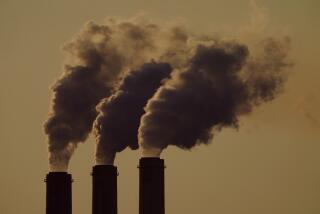Op-Ed: Amy Coney Barrett’s Supreme Court could shred environmental protections

Safe drinking water, clean air, healthy wildlife and natural habitat might not be front of mind as the Senate moves forward with President Trump’s Supreme Court nominee, Judge Amy Coney Barrett — but they should be.
That’s because the Supreme Court often has the last word on how, and sometimes even whether, federal laws are effectively applied to protect our families, communities and public lands from toxic pollution and industrial ruin. And the court could determine whether and how we cut the climate pollution that’s making disasters like storms, floods, wildfires and drought more devastating across the West and around the country.
The outcome of multiple cases the court is likely to hear could have a far-reaching effect on our day-to-day lives by determining what we can do to protect the water we drink, the air we breathe and the natural systems that sustain all life.
These protections are foundational to our health and quality of life. And, because environmental hazard and harm often falls heaviest on low-income communities and people of color, these protections are essential to the urgent work of building a more just and equitable society.
The Supreme Court’s role in dealing with environmental issues is more important now than ever. That’s because more than 100 rules and standards that address everything from clean rivers and wetlands to air quality to controls on toxic substances and pesticides have been reversed or threatened by the Trump administration in recent years. The court may have the final say on the lawfulness of many of these rollbacks.
Judge Barrett’s record on environmental decisions is slim. It was deeply disturbing to hear her characterize climate change in the Senate hearings last week as “a very contentious matter of public debate,” rather than the scientifically established global crisis it is. And she describes her judicial philosophy as that of the late Justice Antonin Scalia, who voted against environmental protections in several cases.
A further anti-environmental shift on the court could put at risk more than specific public health and environmental laws. Also on the line are the legal and regulatory tools we have to fight climate change and even the ability of public interest groups to bring cases that challenge actions of industry.
The day before election day, in fact, the Supreme Court is scheduled to hear a case that could damage the public’s ability to mount an effective legal challenge to federal decisions that affect endangered species and wildlife habitat.
For decades, the public has had routine access to documents that government agencies prepare, as required by the Endangered Species Act, to ensure that their actions do not harm a listed species or harm critical habitat.
The Trump administration is now trying to deny the public access to those documents, and the information they can provide. That would put the public at a disadvantage when it comes to showing that there was information the agency didn’t properly take into account, or that the agency ignored information that should have led to a better result.
Other cases the court might hear could limit the ability of state and local authorities to protect the environment and public health. Two years ago, for instance, Washington state denied a permit for a coal export terminal on parts of the Columbia River and adjacent wetlands that are important to Indigenous people and others. The states of Wyoming and Montana have asked the Supreme Court to decide whether Washington has violated the Commerce Clause of the Constitution by preventing exports of coal from their states.
Another case could determine whether fossil fuel companies may condemn state-owned land, or land in which a state has an interest, to run an oil or gas pipeline through the land despite the state’s objections.
Still others could have a lasting impact on whether the public can sue to hold polluters accountable for illegal conduct and to compel the government to enforce the laws.
These are questions that go to the quality of our democracy itself. They also deeply affect the rights of low-income communities and people of color, who often bear a disproportionate burden of environmental harm.
The Supreme Court plays a critical role in protecting the environment and public health. Judge Barrett’s appointment to a seat on the court could have a profound influence on how we safeguard our communities against environmental disasters and the widening hazard of global climate change — and ultimately, on the kind of world our children inherit.
Gina McCarthy, former administrator for the U.S. Environmental Protection Agency, is president and CEO of the Natural Resources Defense Council, an environmental advocacy group. Mitch Bernard is its executive director and chief counsel.
More to Read
A cure for the common opinion
Get thought-provoking perspectives with our weekly newsletter.
You may occasionally receive promotional content from the Los Angeles Times.






